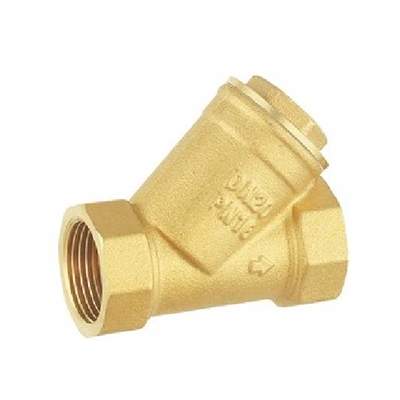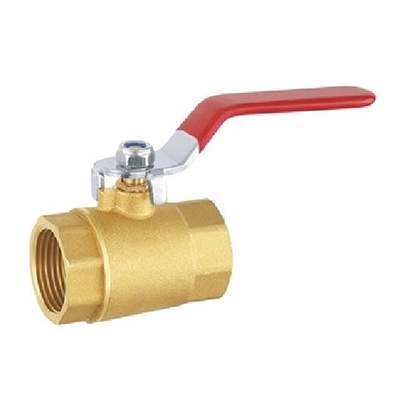Introduction

Brass gate valves have been a cornerstone in plumbing and industrial applications for decades. Their unique blend of durability, corrosion resistance, and affordability makes them an excellent choice for a wide range of applications. In this comprehensive guide, we will delve deep into the reasons why brass gate valves are preferred over other valve types, explore their diverse applications, and provide a detailed guide on selecting the right one for your specific needs. We will also discuss the inner workings of these valves, factors to consider during selection, and compare them to other valve types.
The Advantages of Brass Gate Valves
Brass gate valves offer a compelling combination of benefits that make them a popular choice for various applications. One of their primary advantages is their exceptional corrosion resistance. Brass, a naturally corrosion-resistant alloy, is highly resistant to the corrosive effects of water, mild acids, and other substances commonly encountered in plumbing and industrial settings. This inherent property ensures the longevity and reliability of brass gate valves, even in harsh environments.
Another key advantage is their remarkable durability. Brass gate valves are engineered to withstand high pressures and temperatures, making them suitable for demanding applications. They are built to last, providing years of reliable service without frequent maintenance or replacement.
Ease of operation is another factor that contributes to the popularity of brass gate valves. Their simple design and straightforward mechanism allow for smooth and effortless operation. Minimal maintenance is required to keep these valves functioning optimally.
In terms of cost-effectiveness, brass gate valves offer a compelling value proposition. Compared to other valve materials, such as stainless steel, brass is more affordable, making it a budget-friendly option without compromising on performance.
The versatility of brass gate valves is another significant advantage. They are available in a wide range of sizes and configurations, making them suitable for a diverse array of applications, from residential plumbing to industrial processes.
How Brass Gate Valves Work
A brass gate valve operates on a simple yet effective principle. It consists of a valve body, a valve seat, a gate disc, and a handwheel. When the handwheel is turned, it raises or lowers the gate disc, which is a wedge-shaped component. In the closed position, the gate disc is tightly seated against the valve seat, preventing the flow of fluid. As the handwheel is turned to open the valve, the gate disc is lifted, allowing fluid to pass through the valve opening.
Applications of Brass Gate Valves
Brass gate valves find widespread application across various industries, including:
- Plumbing: In residential and commercial buildings, brass gate valves are commonly used to control the flow of water to sinks, toilets, showers, and other fixtures. Their durability and corrosion resistance make them ideal for long-lasting performance in plumbing systems.
- Industrial: Brass gate valves play a crucial role in industrial processes, particularly in chemical processing, food and beverage production, and HVAC systems. Their ability to handle high pressures and temperatures, as well as their resistance to corrosion, makes them suitable for demanding industrial applications.
- Marine: The marine environment is notoriously harsh, with exposure to saltwater and other corrosive elements. Brass gate valves, with their excellent corrosion resistance, are well-suited for use in marine applications, such as on boats, ships, and offshore platforms.
Factors to Consider When Choosing a Brass Gate Valve
When selecting a brass gate valve, several key factors must be considered to ensure optimal performance and longevity:
- Pipe Size: The valve size should match the diameter of the pipe to ensure a proper fit and prevent leaks.
- Pressure Rating: The valve’s pressure rating should exceed the maximum operating pressure of the system to avoid potential failures.
- Temperature Rating: The valve’s temperature rating should accommodate the expected temperature range of the fluid being handled.
- End Connections: The type of end connections (e.g., threaded, flanged) should be compatible with the piping system.
- Material Compatibility: The brass alloy used in the valve should be compatible with the fluid being handled to prevent corrosion and other issues.
Brass Gate Valve vs. Other Valve Types
| Feature | Brass Gate Valve | Ball Valve | Butterfly Valve |
|---|---|---|---|
| Corrosion Resistance | Excellent | Good | Good |
| Durability | High | High | Moderate |
| Flow Control | On/off | Full flow | Throttling |
| Cost | Moderate | Moderate | Low |
| Maintenance | Low | Low | Low |
Brass Gate Valve vs. Other Valve Types

Brass gate valves offer excellent corrosion resistance and durability, making them a reliable choice for various applications. While they provide precise on/off control, they may not be suitable for frequent or throttling operations.
Ball valves offer full flow capacity and are easy to operate. However, they may not be as durable as brass gate valves, especially in high-pressure or high-temperature applications.
Butterfly valves are compact and lightweight, making them suitable for space-constrained applications. They offer good flow control and are relatively easy to operate. However, they may not be as durable as brass gate valves, particularly in high-pressure or high-temperature environments.
Conclusion
Brass gate valves offer a compelling combination of durability, corrosion resistance, and affordability, making them an excellent choice for a wide range of applications. By understanding the factors that influence the selection of a brass gate valve, you can make an informed decision and ensure the optimal performance of your system.
FAQ
What is the difference between a brass gate valve and a ball valve?
Brass gate valves provide precise on/off control, while ball valves offer full flow capacity. Brass gate valves are generally more durable, but ball valves are often more compact and easier to operate.
How do I choose the right size brass gate valve?
The size of the brass gate valve should match the diameter of the pipe to ensure proper fit and prevent leaks. Refer to the valve manufacturer’s guidelines for specific sizing recommendations.
Can brass gate valves be used with hot water?
Yes, brass gate valves can be used with hot water, but it’s important to choose a valve with a suitable temperature rating to avoid damage.
How often should I replace my brass gate valve?
The lifespan of a brass gate valve can vary depending on factors such as usage, water quality, and maintenance. However, with proper care, brass gate valves can last for many years. Regular inspection and maintenance can help extend their lifespan.
